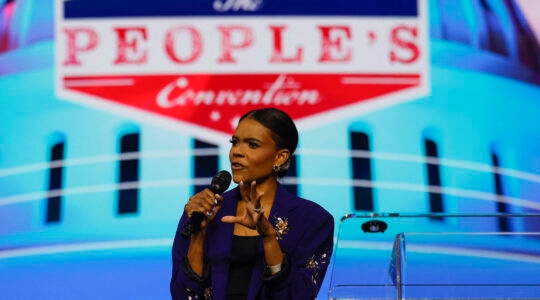The New York Times has a feature today on Barack Obama’s foreign policy team.
Behind the e-mail messages is a tight-knit group of aides supported by a huge 300-person foreign policy campaign bureaucracy, organized like a mini State Department, to assist a candidate whose limited national security experience remains a concern to many voters.
“It is unwieldy, no question,” said Denis McDonough, 38, Mr. Obama’s top foreign policy aide, speaking of an infrastructure that has been divided into 20 teams based on regions and issues, and that has recently absorbed, with some tensions, the top foreign policy advisers from Senator Hillary Rodham Clinton’s presidential campaign. “But an administration is unwieldy, too. We also know that it’s messier when you don’t get as much information as you can.”
The article lists some of the top players:
Mr. Obama’s core team is led by Susan E. Rice, an assistant secretary of state for African affairs in the Clinton administration, who has pushed for a tougher response to the crisis in the Darfur region of Sudan, and Anthony Lake, Mr. Clinton’s first national security adviser, who was criticized for the administration’s failure to confront the genocide in Rwanda in 1994 and now acknowledges the inaction as a major mistake.
The core group also includes Gregory B. Craig, a former top official in the Clinton State Department who served as the president’s lawyer during his impeachment trial; Richard J. Danzig, a Navy secretary in the Clinton administration; Mark W. Lippert, Mr. Obama’s former Senate foreign policy adviser, who just returned from a Navy tour of duty in Iraq; and Mr. McDonough.
Mr. McDonough and Mr. Lippert are paid by the campaign and based in Chicago, and the rest are outside advisers who volunteer their time from Washington.
The group no longer includes Samantha Power, the Pulitzer Prize-winning Harvard human rights expert who resigned in March after she was quoted calling Mrs. Clinton a “monster.” But Mr. Lake still talks to Ms. Power, and Mr. Obama sent a long personal tribute that was read at her wedding in Ireland this month.
Plus we get some details about the role that Dennis Ross is playing with the campaign:
Dennis Ross, the Middle East envoy for Mr. Clinton and the first President Bush and a member of the Obama campaign’s Middle East team, is frequently asked by Ms. Rice, Mr. Lake or Mr. McDonough for help on framing Mr. Obama’s comments on Iran’s nuclear program and its potential threat to Israel.
“They’ve asked for substantive help: ‘Can I take a look at language on Iran?’ ” Mr. Ross said. “Or sometimes I’ve been asked questions to explain the administration’s approach on Iran.” Mr. Ross participated in a conference call last week with Mr. Obama and other advisers to prepare for the senator’s foreign trip, and he will travel with Mr. Obama in Israel and the West Bank city of Ramallah and at other stops. Mr. Ross described Mr. Obama in the conference call as focused on “drilling down” into the issues on the trip.
For those keeping score, another Clinton administration veteran, Dan Shapiro, and Obama campaign staffer Eric Lynn also play a role on Israel-related issues (no surprise, considering they are the ones manning the Jewish desk). And don’t forget former U.S. ambassador to Israel Daniel Kurtzer.
Here’s a question: With all these people, how exactly did Obama end up needing to clarify his call at the AIPAC conference for an “undivided Jerusalem.” Kurtzer, for one, has said that Obama “misused” the term.
Kurtzer treated the issue as Obama’s personal goof:
Daniel Kurtzer, who advises Obama on the Middle East, said Tuesday at the Israel Policy Forum that Obama’s comment stemmed from “a picture in his mind of Jerusalem before 1967 with barbed wires and minefields and demilitarized zones.”
“So he used a word to represent what he did not want to see again, and then realized afterwards that that word is a code word in the Middle East,” Kurtzer said.
But, as the NYT’s article today makes clear, that explanation doesn’t wash. If indeed it was a mistake to use the term, responsibility rests with the entire foreign-policy apparatus that Obama has put together. I’ve been told that up to 40 people either had a hand in or looked over the speech. All of them misused the term (again, Kurtzer’s word, not mine)?
More likely, the way to understand what happened is to think of Obama’s campaign like an actual administration, with various players and groups attempting to influence policy, speeches, etc. The question is who was and wasn’t listened to (or even asked to vet the speech) beforehand, and who ended up on top afterwards. And, of course, what it all means for future power struggles down the road.
JTA has documented Jewish history in real-time for over a century. Keep our journalism strong by joining us in supporting independent, award-winning reporting.




